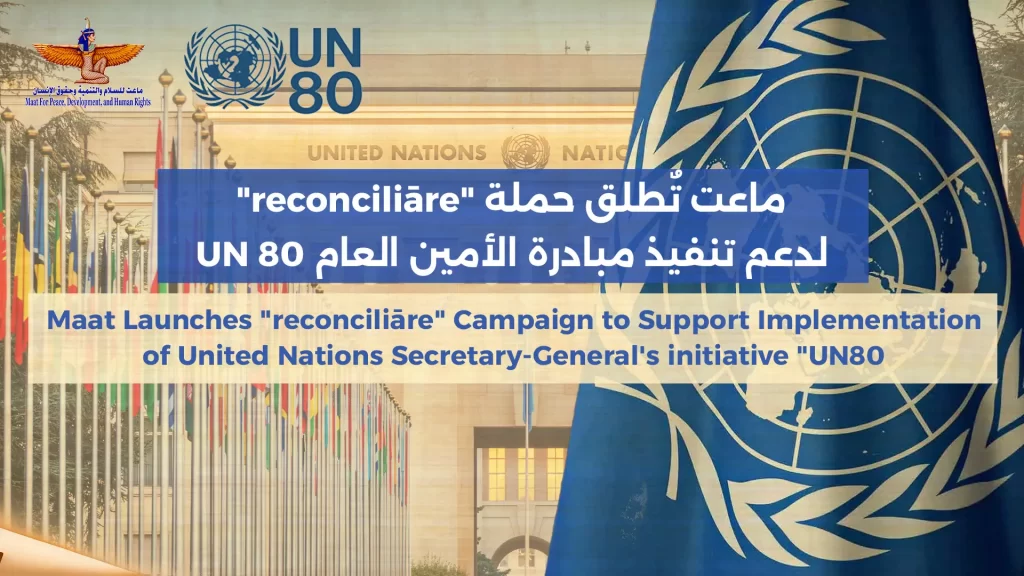Okeil: Artificial intelligence is a double-edged weapon cuts both ways
Sherif Abdel Hamid: Artificial intelligence must be used in accordance with international standards to protect and promote human rights
Maat for Peace, Development and Human Rights has released a new study entitled "The Role of Artificial Intelligence in Promoting Peace in Conflict Areas", which covered the positive role that artificial intelligence can play in ending wars and spreading a culture of peace. Although artificial intelligence can cause harm to humans, such as the widespread dissemination of misleading information and the expansion of the use of autonomous weapons, which are used in wars, especially in areas of armed conflict, in a clear violation of the right to life and personal safety stipulated in all international agreements. On a larger extent, artificial intelligence can be used in undermining civil liberties, through violating the right to freedom of expression and freedom of assembly by targeting specific opinions on social media sites and deleting them under the pretext of violating the policies of these sites, in addition to its use in hacking the personal data of websites users, violating the privacy of individuals in cyberspace, among other violations.
However, the study examined the positive roles that artificial intelligence can play in spreading a culture of peace, especially in conflict-affected countries. In recent years, a new trend has emerged calling for the use of these technologies in spreading and promoting peace in areas of armed conflict and reducing tension in conflict hotspots and in areas threatened by humanitarian crises, replacing the traditional method adopted by the United Nations Department of Political and Peacebuilding Affairs to achieve this end. The implementation of these methods used to take months and to cost several thousand dollars. Artificial intelligence techniques can be used to promote peace in conflict areas through using the information given by the citizens themselves without an intermediary, and by analyzing this information, the United Nations can intervene to mediate or stop the fire in conflict-affected areas through peace agreements. It also can identify the groups most affected in these fragile areas, and accordingly, these groups can be targeted with humanitarian aid, which may alleviate the suffering they are exposed to.
Ayman Okeil, president of Maat, stated that artificial intelligence is a double-edged weapon cuts both ways. Companies and governments may use it either to violate basic human rights such as the right to freedom of opinion and expression and the right to freedom of peaceful assembly, or to reduce tension in areas of armed conflict, and protect civilians and non-participants in hostilities. Thanks to these technologies, governments can predict and identify the locations of air strikes, so they can alert civilians in the targeted areas. Besides, these technologies can also be used to obtain information from the affected population in areas of armed conflict, deliver humanitarian aid to them, and conclude peace agreements between the conflicting parties, as happened in Libya recently.
For his part, Sherif Abdel Hamid, director of the Research and Studies Unit at Maat, said that the expansion in the use of these technologies to spread a culture of peace and to try to reduce tension in areas of armed conflict, may have a positive effect in the long run in ending these conflicts and civil wars. These technologies can also be developed to reach the largest possible number of affected people in areas of armed conflict, but at the same time, the persistence in using these technologies in a harmful way will constitute a major threat to the basic human rights, including the right to life and the right to freedom of opinion and expression. Abdel-Hamid stressed the need for an international convention that legalizes the use of artificial intelligence in a way that consolidates the positive aspects that this technology can achieve, and in line with the recommendations made by the UNESCO on the establishment of artificial intelligence on a solid moral base that protects and promotes human rights, and the need to impose sanctions on states or companies that use these technologies in a manner that violates human rights.
 |
 |
shortlink: https://maatpeace.org/en/?p=32928











